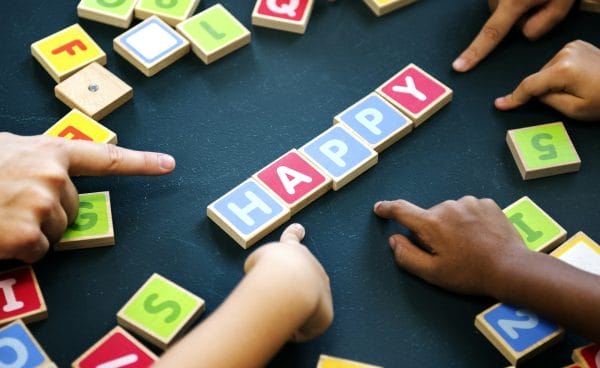Mastering the Basics: Easy Spelling Words for Everyone
Spelling is a fundamental skill that is essential for effective communication and literacy. Whether you are a parent teaching your child, a teacher guiding students, or an adult looking to sharpen your skills, understanding and learning easy spelling words can be a crucial step. This article focuses on words that are easy to spell, including the easiest words to spell for various age groups, particularly focusing on easy spelling words for kindergarten. We will explore strategies to make spelling practice engaging and effective, and provide insights into the importance of mastering these foundational words.

Why Focus on Easy Spelling Words?
![]()
Starting with easy to spell words lays the groundwork for literacy. It builds confidence in young learners and adults alike, making the process of learning more complex words less daunting. For children, especially those in kindergarten, recognizing patterns and sounds in easy spelling words helps them decode and understand more challenging words as they progress in their education. For adults, revisiting these words can strengthen spelling skills and improve written communication.
Easy Spelling Words for Kindergarten
![]()
When we think of easy spelling words for kindergarten, we’re focusing on short, phonetic words that children can sound out. These words often include simple consonant-vowel-consonant (CVC) patterns and are among the easiest words to spell. Here are some examples:
- Cat
- Dog
- Pen
- Hot
- Sun
These words serve as the building blocks for literacy. Introducing kindergarteners to these words through a variety of activities can reinforce their spelling skills and develop a love for reading and writing.
Strategies for Teaching Easy Spelling Words
![]()
There are numerous strategies that can make learning easy spelling words engaging for children. Here are some effective methods:
- Use visuals such as flashcards with pictures to associate words with images.
- Implement games like spelling bees or word matching to make learning fun.
- Encourage writing practice by having children spell words out loud while writing them down.
- Incorporate technology with educational apps that focus on spelling and phonetics.
Each strategy can be tailored to the individual learning style of the child, making the process more personalized and effective.
Words That Are Easy to Spell for Beginners
![]()
Beyond kindergarten, there are easy spelling words that are suitable for beginners of all ages. These words include more complex patterns but are still considered easy to spell. Examples include:
- Jump
- Bird
- Green
- Music
- Happy
These words introduce new concepts such as blends, digraphs, and slightly longer phonetic structures while still being accessible to early spellers.
Case Study: The Impact of Learning Easy Spelling Words
![]()
A study in early childhood education showed that children who mastered a set of easy spelling words by the end of kindergarten had a significant advantage in reading and writing skills by the time they reached the first grade. The study found that these children had an easier time recognizing patterns in more difficult words, which accelerated their language development and comprehension skills.
Easiest Word to Spell
![]()
What is the easiest word to spell? While this can be subjective, most would agree that three-letter CVC words, such as “cat”, “dog”, and “sun”, are among the simplest for beginners to spell. These words are easy to spell due to their straightforward phonetic structure and the fact that they can be sounded out with basic phonics rules.
Spelling in the Digital Age
![]()
In an era dominated by autocorrect and spellcheck, some may wonder if learning to spell is as important as it used to be. However, studies have shown that a strong foundation in spelling is linked to better reading comprehension and writing ability. While technology can aid in learning, it should not replace the fundamental practice of spelling. Engaging with easy spelling words develops cognitive skills that technology cannot replicate.
Frequently Asked Questions
![]()
What is the correct way to spell the word “cat”?
The correct spelling is C-A-T.
How do you spell the word “dog”?
The word “dog” is spelled D-O-G.
What is the right spelling for the word “apple”?
The word “apple” is spelled A-P-P-L-E.
Can you tell me how to spell “blue”?
Yes, “blue” is spelled B-L-U-E.
What is the correct spelling of “car”?
The correct spelling is C-A-R.
How should I spell the word “day”?
The word “day” is spelled D-A-Y.
What’s the right way to spell “egg”?
The right spelling is E-G-G.
Can you show me how to spell “fish”?
Sure, “fish” is spelled F-I-S-H.
How do I spell the word “green”?
The word “green” is spelled G-R-E-E-N.
What is the proper spelling for “house”?
The proper spelling is H-O-U-S-E.
Conclusion: The Power of Easy Spelling Words
![]()
In conclusion, starting with easy spelling words is a vital step in the journey to literacy. Whether it’s the easiest word to spell for a beginner or easy spelling words for kindergarten, these foundational words set the stage for future learning and development. By incorporating fun and personalized teaching strategies, educators and parents can foster a love for spelling and writing in children. Adults can also benefit from revisiting these basics to enhance their communication skills. Remember, spelling is not just about memorizing letters; it’s about understanding the patterns and sounds that make up our language.
Let’s embrace the power of easy spelling words and recognize their role in building a literate, confident, and articulate society.


